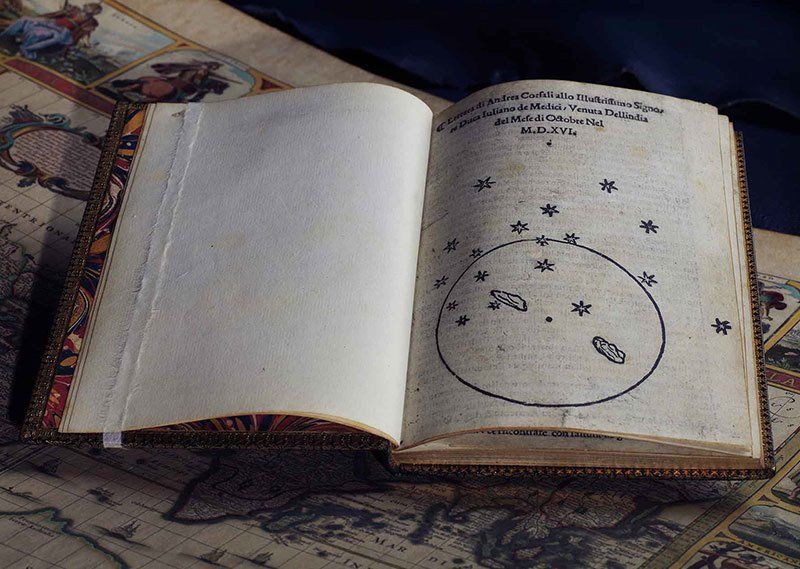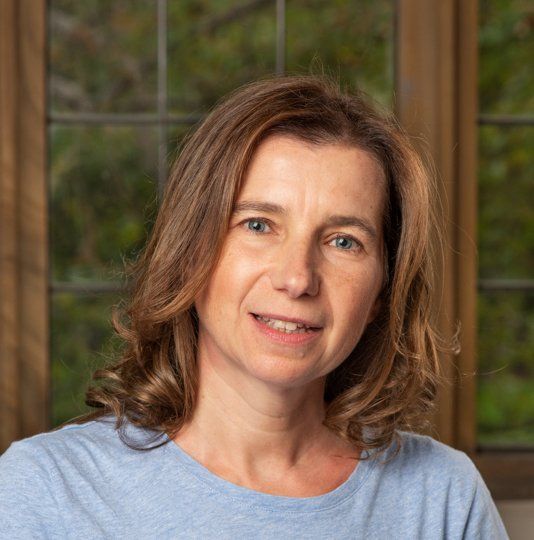About
The Australasian Centre for Italian Studies (ACIS) is …
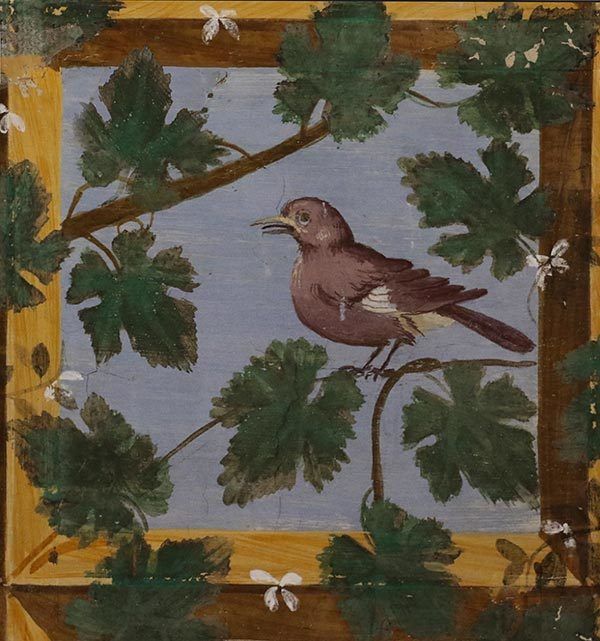
Slide title
Write your caption hereButton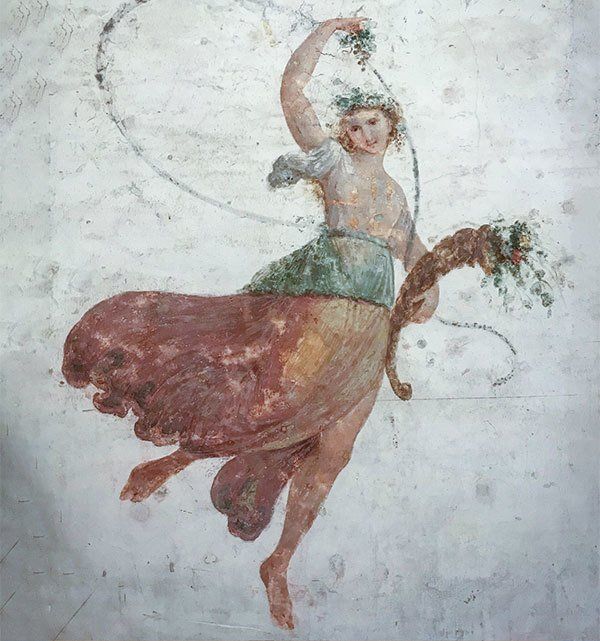
Slide title
Write your caption hereButton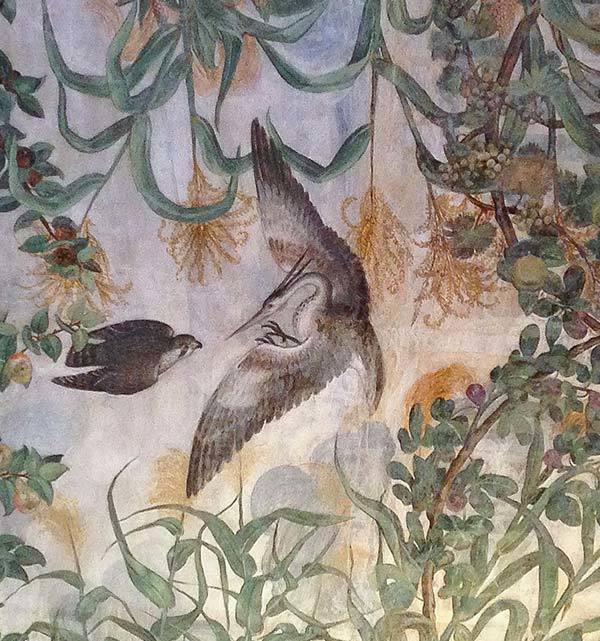
Slide title
Write your caption hereButton
Our Inspiration
Italy and Australasia have many points of intersection, not least the substantial communities of Italians who have made Australia and New Zealand their home, enriching and enlivening the cultures that they found. But perhaps surprisingly the relationship between the two areas of the world has a longer history, predating European settlement. The earliest printed description and illustration of the southern hemisphere’s unique stellar constellation, the Southern Cross, was made by an Italian, the adventurer Andrea Corsali (b. 1487). During Corsali’s 1516 ocean voyage from Lisbon to Cochin (Kochi), India, he observed a distinctive array of stars, unknown to the northern hemisphere. In a letter to his patron, Giuliano di Lorenzo de’ Medici, Corsali wrote of a “marvellous Cross” pointing to the South Pole. Giuliano was so intrigued that he had the letter printed. Today only four copies are extant, one of which was acquired by the State Library of New South Wales. We are grateful to the State Library of New South Wales for permission to reproduce the relevant page of Corsali’s letter , pictured here atop N.I. Piscator/ Claes Janszoon Visscher’s 1652 Nova totius terrarum orbis geographica ac hydrographica tabula [1652].
Image courtesy of the State Library of New South Wales
Our Patron
ACIS is delighted to have Santo Cilauro as its patron. A proud Italo-Australian, Santo Cilauro graduated from Melbourne University in Law and Arts. A founding member of Working Dog Productions, he has written, performed, shot, edited, directed, produced and provided catering for films such as
The Castle, The Dish and TV Shows including
D-Generation, The Late Show, Frontline, Russell Coight’s All Aussie Adventures, The Panel, Hollowmen, Thank God You’re Here, Have You Been Paying Attention?, Santo, Sam and Ed’s Total Football
and
Utopia. He has received multiple Australian Film Industry, Logie and Aria Awards, as well as a nomination for an International Emmy. He is also a recipient of the NSW Premier’s Literary Award and an ‘Italy In The World - Italia Nel Mondo’ prize for his work enhancing the image of Italian excellence in the Arts abroad.
Governance
The activities of ACIS are carried out according to its
Charter for Governance, approved by the Management Committee in 2021, and implemented at its Annual General Meeting in December 2022.
The Management Committee and its Chair is responsible for the overall direction of ACIS and for stewardship of its monies in accordance with the Deed of Trust signed by the Cassamarca Foundation and The University of Western Australia in 2001. Its members are academics and a postgraduate student representative from universities in Australia and New Zealand, drawn from different states and from the principal areas taught under the rubric of Italian Studies – language, literature, linguistics, history, politics, culture, film, society, migration studies. The Management Committee also includes a Project Officer (ex officio).
The Committee meets once a year, including at the biennial conferences.
There are also several other sub committees whose members are drawn both from the Management Committee and externally, according to relevant expertise:
- The Review Committee responsible for reviewing the annual reports from the ACIS Cassamarca appointees.
- The Scholarships Committee responsible for assessing applications for the annual ACIS-Cassamarca Scholarship/s for study in Italy by Honours, Masters by Research and PhD students enrolled in Australasian universities.
- The ACIS Save Venice Fellowship Committee responsible for assessing applications for the annual three-month Fellowship based in Venice.
- The Prizes Committees responsible for assessing applications for the publication prizes.
Management Committee
CHAIR
-
Catherine Kovesi
Catherine Kovesi is a historian at the University of Melbourne and Chair of the ACIS Management Committee. Author of Sumptuary Law in Italy 1200-1500 (OUP, 2002) and of several books on Australian religious history, editor of Luxury and the Ethics of Greed in Early Modern Italy (Brepols, 2018), and co-general editor of the forthcoming Bloomsbury six-volume A Cultural History of Luxury, her research focuses on luxury discourses in early modern Italy, and the familial, political, and religious history of Florence and Venice. She has been a Senior Scholar and then a Visiting Fellow at Oriel College, Oxford, a Fellow at the Harvard Centre for Renaissance Studies at Villa I Tatti in Florence, a Gladys Krieble Delmas Commonwealth scholar, and a network partner of the Leverhulme-funded International Luxury Network.
.
-
John Hajek
John Hajek is Professor of Italian Studies and director of the Research Unit for Multilingualism and Cross-cultural Communication (RUMACCC) at the University of Melbourne. He completed his tertiary studies at the universities of Melbourne, Florence, Padua and Oxford, before returning to Australia first to take up an ARC postdoctoral fellowship in linguistics and before joining the Italian Studies program at the University of Melbourne. He is a Fellow of the Australian Academy of the Humanities, and in 2019 was awarded the AFMLTA medal and received the FIPLV international citation for his efforts in the areas of language education and multilingualism. Originally trained as an Italian dialectologist and Romance linguist, he now has a broad range of language-related research and teaching interests. He publishes extensively including in Italian Studies. Recently completed studies include the representation of Italian language learning and teaching in the Australian press, as well as the presence of Italian in Melbourne’s linguistic landscape.
.
-
Carolyn James
Carolyn James, ACIS Cassamarca Associate Professor in the School of Philosophical, Historical and International Studies, Monash University, is an historian of late-medieval and Renaissance Italy. She has edited the letters of the fifteenth century literary figure, Giovanni Sabadino degli Arienti, analysed his literary works (Olschki, 1996 and 2002) and translated, with Antonio Pagliaro, the late medieval letters of Margherita Datini (Centre of Reformation and Renaissance Studies Toronto, 2012). She is presently working on an Australian Research Council funded project on the Italian Wars (1494-1559) with Professor Susan Broomhall and Dr Lisa Mansfield. Her new monograph entitled A Renaissance Marriage: The Political and Personal Alliance of Isabella d’Este and Francesco Gonzaga 1490-1519, has recently been published by Oxford University Press.
-
Barbara Pezzotti
Barbara Pezzotti is an ACIS Cassamarca Lecturer in European Languages at Monash University, Melbourne, Australia. Her research interests include crime fiction and popular culture, literary geographies and utopian literature. She has published on Italian, Spanish, New Zealand and Scandinavian crime fiction. She is the author of The Importance of Place in Contemporary Italian Crime Fiction. A Bloody Journey (FDU Press, 2012); Politics and Society in Italian Crime Fiction: An Historical Overview (McFarland, 2014); and Investigating Italy’s Past through Crime Fiction, Films and TV Series: Murder in the Age of Chaos (Palgrave MacMillan, 2016). She is the co-editor (with Jean Anderson and Carolina Miranda) of The Foreign in International Crime Fiction: Transcultural Representations (Continuum, 2012); Serial Crime Fiction. Dying for More (Palgrave MacMillan, 2015); and Blood on the Table: Essays on Food in International Crime Fiction (McFarland, 2018). Her current project is provisionally entitled “Mediterranean Crime Fiction: Place, Gender, Identity”.
-
Andrea Rizzi
Andrea Rizzi is ACIS Cassamarca Professor of Italian Studies at the University of Melbourne. Born in Rome and raised in Italy in a bilingual family, Andrea was trained as a scholar and teacher at the Università Statale di Pavia (Italy) and the University of Kent at Canterbury (UK).
Before coming to The University of Melbourne (2005), Andrea held positions in the UK, at the University of Western Australia, and at the University of South Australia.
Between 2015 and 2019 Andrea was an Australian Research Council Future Fellow. In 2010-2011 he was awarded the Harvard University's Deborah Loeb Fellowship at the Villa I Tatti Center for Italian Renaissance Studies.
Andrea is an early modern literary and translation history scholar with an interdisciplinary approach to the study of this significant period of European culture: having been trained as a philologist as an undergraduate student at the University of Pavia (Italy), Andrea then developed a focus on the transmission and tradition of historical Latin texts throughout the Italian Renaissance. Cultural history, literature, and translation studies are therefore the three interconnected streams of Andrea's research.
-
Susanna Scarparo
Susanna Scarparo is Pro-Vice Chancellor (Student Life) at the University of Sydney. Author of Elusive Subjects: Biography as Gendered Metafiction (2005), co-author of Reframing Italy: New Trends in Italian Women Filmmaking (2013), and Reggae and Hip Hop in Southern Italy: Politics, Languages and Multiple Marginalities (2018), several co-edited volumes, book chapters and articles, her research focuses on contemporary Italian literature, Italian cinema, life writing, feminist theory, and global studies. She has been Associate Dean (Education) at Monash University and Associate Dean (Student Experience) at the Australian National University.
-
Mark Seymour
Mark Seymour is professor of History at the University of Otago, New Zealand – where he has worked since 2004. He earned a BA (in Italian and Economic History) at the University of Sydney, and a PhD at the University of Connecticut. He is the author of Debating Divorce in Italy: Marriage and the Making of Modern Italians (Palgrave, 2006) and Emotional Arenas: Life Love and Death in 1870s Italy (Oxford, 2020). With Penelope Morris and Francesco Ricatti, he co-edited Politica ed emozioni nella storia d’Italia dal 1848 ad oggi (Viella, 2012), and with Sean Brady, From Sodomy Laws to Same-Sex Marriage: International Perspectives since 1789 (Bloomsbury, 2019). He has also published articles and book chapters, the latest of which is ‘Global Happiness’ in the Routledge History of Emotions in the Modern World (2022). He was co-editor of ASMI’s journal Modern Italy from 2015-2020, and, with Milena Sabato of Salento, is currently preparing a primary-source reader on Italian history from the eighteenth century to the present.
-
Laura Di Blasi
Laura Di Blasi is the Postgraduate Representative on the Management Committee. Laura is a current PhD candidate at the University of Melbourne in the school of Languages and Linguistics. She completed her Bachelor of Arts (Honours) at the end of 2020, majoring in Italian and English and Theatre Studies.
Her PhD thesis combines both her love for literature and Italian studies, centering around the early modern Italian woman writer Laura Terracina, and her rewriting of Ludovico Ariosto’s chivalric tale Orlando Furioso. Her interests include intersectional approaches to women’s literature, women’s rewritings and translation.
-
Elisabetta Ferrari
Elisabetta Ferrari is the ACIS Project Officer. She is a Lecturer in Italian Studies in the School of Languages and Linguistics at The University of Melbourne. She has worked in tertiary education in Australia for the past two decades in various capacities.
Following university studies in languages and literature at the Università degli Studi di Parma she completed a BA with Honours at Monash University and a Master of Arts in Cinema Management at the University of Melbourne. Her research interests are in Italian cinema, 20th century Italian visual art and the contemporary Italian detective novel.
